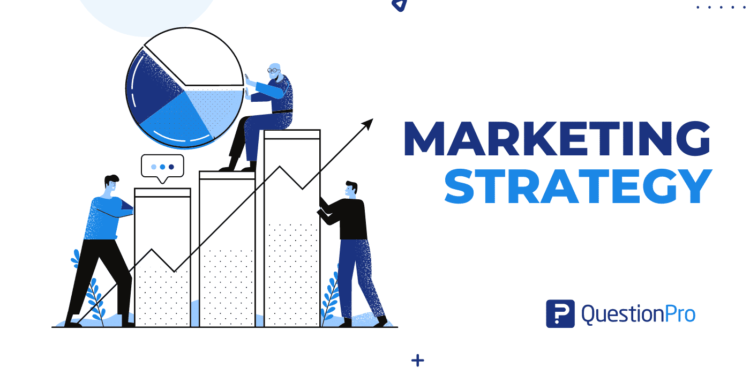In the rapidly evolving world of business, the role of a Marketing Strategist has become increasingly pivotal. Marketing strategists are essential in developing and executing strategies that not only elevate brand presence but also drive sales and customer engagement. This article explores the responsibilities, skills, and strategies that define a successful marketing strategist, as well as the evolving landscape they navigate.
Understanding the Role of a Marketing Strategist
What is a Marketing Strategist?
A Marketing Strategist is a professional who specializes in planning and implementing marketing strategies tailored to achieve specific business goals. Their primary focus is on analyzing market trends, identifying target audiences, and developing comprehensive marketing plans that align with a company’s objectives.
Key Responsibilities
The responsibilities of a marketing strategist can vary widely based on the organization and industry. However, some core duties include:
- Market Research: Conducting thorough research to understand market dynamics, customer preferences, and competitive landscapes.
- Strategy Development: Creating marketing strategies that encompass various channels, including digital, social media, content marketing, and traditional advertising.
- Brand Management: Ensuring consistent brand messaging and positioning across all marketing efforts.
- Performance Analysis: Monitoring and analyzing campaign performance metrics to determine effectiveness and make data-driven adjustments.
Essential Skills of a Marketing Strategist
To excel as a marketing strategist, certain skills and competencies are crucial:
Analytical Skills
A marketing strategist must possess strong analytical skills to interpret data effectively. This includes understanding customer behavior, market trends, and campaign performance metrics. The ability to draw insights from data is vital for making informed decisions and optimizing strategies.
Creative Thinking
Creativity is at the heart of successful marketing strategies. A marketing strategist should be able to think outside the box and develop innovative campaigns that capture audience attention and differentiate the brand from competitors.
Communication Skills
Effective communication is essential for a marketing strategist. They must convey ideas clearly to various stakeholders, including team members, clients, and external partners. Strong writing and presentation skills are also important for crafting compelling marketing messages.
Project Management
Marketing strategists often work on multiple projects simultaneously. Effective project management skills, including time management, organization, and the ability to collaborate with cross-functional teams, are critical for success.
Digital Proficiency
In today’s digital age, a marketing strategist must be proficient in various digital marketing tools and platforms. This includes social media management, search engine optimization (SEO), email marketing, and data analytics tools.
The Strategic Process
1. Conducting Market Research
The foundation of any effective marketing strategy is thorough market research. This involves gathering data about the target audience, competitor analysis, industry trends, and consumer behavior. Techniques can include surveys, focus groups, and analyzing online behavior through analytics tools.
2. Defining Target Audience
Identifying the target audience is crucial for tailoring marketing efforts. A marketing strategist should create detailed buyer personas that outline demographics, preferences, pain points, and purchasing behavior. This helps ensure that marketing messages resonate with the intended audience.
3. Developing Marketing Objectives
Clear and measurable marketing objectives are essential for guiding strategy. These objectives should align with overall business goals and may include increasing brand awareness, generating leads, boosting sales, or enhancing customer loyalty.
4. Crafting the Marketing Plan
Once the objectives are established, the marketing strategist develops a comprehensive marketing plan. This plan outlines the tactics, channels, and resources required to achieve the defined objectives. It includes:
- Content Strategy: Developing content that engages the target audience, addresses their needs, and supports brand messaging.
- Channel Strategy: Selecting the appropriate marketing channels, such as social media, email, paid advertising, and events, to reach the target audience effectively.
- Budgeting: Allocating resources and establishing a budget to ensure the plan is financially viable.
5. Implementation
The implementation phase involves executing the marketing plan. This requires coordinating with various teams, such as design, content, and sales, to ensure all elements align with the strategy. Effective communication and project management are crucial during this phase.
6. Monitoring and Optimization
After implementation, monitoring campaign performance is essential. A marketing strategist should use analytics tools to track key performance indicators (KPIs) such as conversion rates, engagement levels, and return on investment (ROI). Based on the data collected, adjustments should be made to optimize ongoing and future campaigns.
The Evolving Landscape of Marketing Strategy
Digital Transformation
The rise of digital marketing has transformed the role of the marketing strategist. With more consumers engaging with brands online, strategists must adapt to new technologies and platforms. This includes leveraging data analytics, social media engagement, and search engine marketing to reach audiences effectively.
Customer-Centric Approach
Modern marketing strategies increasingly emphasize a customer-centric approach. Understanding customer needs, preferences, and behaviors has never been more critical. Marketing strategists must prioritize building relationships and trust with customers to foster brand loyalty.
Integration of New Technologies
Emerging technologies such as artificial intelligence (AI), machine learning, and automation are redefining marketing strategies. Marketing strategists are leveraging these tools to analyze data more effectively, personalize customer experiences, and streamline processes.
Sustainability and Ethical Marketing
As consumers become more socially conscious, marketing strategists are increasingly focusing on sustainability and ethical practices. Brands that align their values with those of their customers are more likely to succeed in today’s market. Marketing strategists must find ways to communicate their brand’s commitment to social responsibility authentically.
Future Trends in Marketing Strategy
Personalization
Personalization is poised to be a key trend in marketing strategy. As consumers expect tailored experiences, marketing strategists will need to utilize data to create personalized content and offers that resonate with individual preferences.
Omnichannel Marketing
An omnichannel approach, which integrates multiple channels for a seamless customer experience, is becoming increasingly important. Marketing strategists will need to ensure consistency across all touchpoints, whether online or offline.
Data-Driven Decision Making
The importance of data in marketing strategy will continue to grow. Marketing strategists will need to embrace data analytics to inform their decisions, optimize campaigns, and measure success.
Conclusion
The role of a Marketing Strategist is multifaceted and crucial in today’s competitive landscape. By understanding market dynamics, developing innovative strategies, and leveraging data, marketing strategists can drive business success and foster lasting relationships with customers. As the marketing landscape continues to evolve, those in this role must remain adaptable, creative, and strategic in their approach to achieve optimal results. With the right skills and a commitment to continuous learning, marketing strategists can navigate the complexities of the market and lead their organizations to success.
LinkedIn Profile URL: https://www.linkedin.com/in/navnishbhardwaj






























